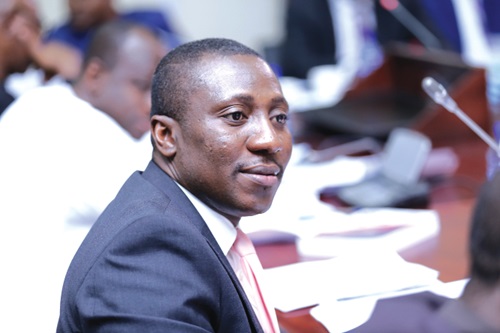
Consider national interest first - Majority Leader to political actors
The Majority Leader in Parliament, Alexander Afenyo-Markin, has expressed concern about how Ghana's political class is increasingly being consumed by a desire to outdo one another rather than concentrating on the common agenda of developing the nation.
That, he said, had led to the adoption of measures aimed at undermining political opponents rather than fostering national progress. “Ghana has long been celebrated as a beacon of democracy and stability in Africa, a testament to the resilience of our institutions and the activism of our political class. However, beneath this grace lies an emerging reality: the detrimental effects of our politics,” he stated.
Mr Afenyo-Markin, who is also the New Patriotic Party Member of Parliament for Effutu in the Central Region made the statement on the floor of Parliament yesterday.
He lamented that the focus on electoral battles and building political capital had left a significant portion of the population, including the youth, behind. This has resulted in scarce entrepreneurship and employment opportunities, with even basic tasks in the construction sector being taken over by artisans from neighbouring countries.
Support
Mr Afenyo-Markin acknowledged the government's efforts to address these challenges through a social intervention programme but emphasised that united support from the political class was crucial to delivering comprehensive results.
He warned that frustrations and disillusionment among the masses, particularly the youth, could lead to significant social and political unrest, citing the recent Gen Z activism in Kenya as a stark warning.
The Majority Leader urged the political class to take proactive and comprehensive measures to address public discontent and recommit to a national agenda that leveraged the potential of the country’s youth and unlocked the country's massive development potential.
"Let us not allow our preoccupation with political manoeuvring to blind us to the reality of public expectations," he cautioned.
